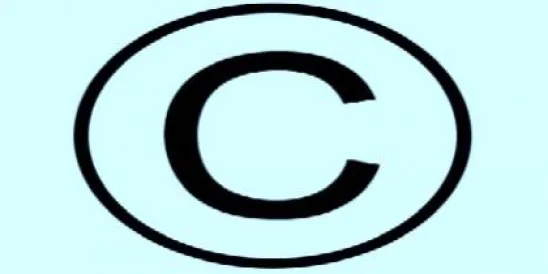On Monday, March 7th, the Supreme Court agreed to hear the appeal of Golan v. Holder (10-545), a case that seeks to resolve whether it is constitutional for Congress to retroactively grant copyright protection to materials previously in the public domain in the United States. At issue is not only congressional authority under the Copyright Clause, but also whether the law in question violates the First Amendment.
The predicate for this case dates back to 1989, when the United States joined the Berne Convention for the Protection of Literary and Artistic Works ("Berne Convention"). Article 18 of the Berne Convention ("Article 18") requires signatories to provide foreign authors the same level of copyright protection received in their native countries. Accordingly, if a participating country provides 100 years of protection to an author, then so too must the United States. Then, in 1994, as part of the Uruguay Round General Agreement on Tariffs and Trade, the United States signed the Agreement on Trade Related Aspects of Intellectual Property, which required signatories to comply with Article 18.
To effectuate that mandate, Congress enacted the Uruguay Round Agreements Act ("URAA"). Section 514 of the URAA extends copyright protections to works that had previously entered the public domain in the United States while those works were still protected under foreign law. As a result, musical compositions, such as Sergei Prokofiev's "Peter and the Wolf," and movies, like Fritz Lang's "Metropolis," which had been part of the public domain in the United States became, again, copyrighted works.
In 2001, plaintiffs, including lead plaintiff University of Denver music professor Lawrence Golan, sued, asserting that Section 514 of the URAA was unconstitutional under both the Copyright Clause of the Constitution (Article 1, § 8, Cl. 8) and the First Amendment. In response, the Attorney General of the United States, along with organizations such as the Motion Picture Association of America, argued that the law is necessary to comply with the international treaty and to ensure that domestic copyright holders receive copyright protection in foreign countries.
In the last decade, the case has made two trips to the United States Court of Appeals for the Tenth Circuit. In the first instance, the 10th Circuit determined that Section 514 did not exceed limitations on Congress imposed by the Copyright Clause. See Golan v. Gonzalez, 501 F.3d 1179 (10th Cir. 2007).1 The court explained that it did "not believe that the decision to comply with the Berne Convention, which secures copyright protections for American works abroad, is so irrational or so unrelated to the aims of the Copyright Clause that it exceeds the reach of congressional power." However, explaining that plaintiffs had successfully shown "sufficient free expression interests in works from the public domain to require First Amendment scrutiny," the appellate court remanded the case to the district court to determine whether Section 514 violated the First Amendment.
On remand, noting:
"the bedrock principle that works in the public domain remain in the public domain," the district court held Section 514 unconstitutional, finding that the legislation was "substantially broader than necessary to achieve the government's interest." See Golan v. Holder, 611 F.Supp.2d 1165 (D. Colo. 2009).
On appeal, the 10th Circuit reversed. See Golan v. Holder, 609 F.3d 1076 (10th Cir. 2010) First, the court concluded that Section 514 addresses a substantial or important governmental interest, i.e. protecting American copyright holders in foreign countries by ensuring that foreign works receive equivalent protections here. As the court explained:
"[t]he United States' ability to protect American works abroad would be achieved less effectively absent Section 514, and therefore, the government's interest is genuinely advanced by restoring foreign copyrights with limited protections for [parties] such as plaintiffs."
Second, the court determined that the legislation was narrowly tailored, as "the burdens imposed on [the parties] are congruent with the benefits Section 514 affords American copyright holders." Accordingly, the court found that Section 514 did not violate the First Amendment.
The Supreme Court's determination of these copyright and First Amendment issues will have a tremendous impact on the cost of using re-copyrighted works. As the 10th Circuit noted, in removing works from the public domain, "plaintiffs are either prevented from using these works or are required to pay licensing fees to the copyright holders—fees that are often cost-prohibitive for plaintiffs." It is possible that Eldred will inform the Court's decision, as the Court determined that the Copyright Clause imbues Congress with wide discretion to establish time limits for copyright. Alternatively, it is unquestionable that the issues at play in Eldred – extending copyright terms of works that were still protected by copyright – are distinguishable from the fundamental issue here of reasserting copyright protection on those works that had already retired to the public domain. The Court will take up the case in its next term which begins October 3, 2011.
_______________________
1 Separately, plaintiffs alleged that the Copyright Term Extension Act ("CTEA") of 1998, which extended copyright terms by 20 years for works that were still copyrighted, was unconstitutional. The 10th Circuit held that plaintiffs' challenge to the CTEA was barred by the Supreme Court's decision in Eldred v. Ashcroft, 537 U.S. 186 (2003), which concluded that the CTEA was constitutional.



 />i
/>i

